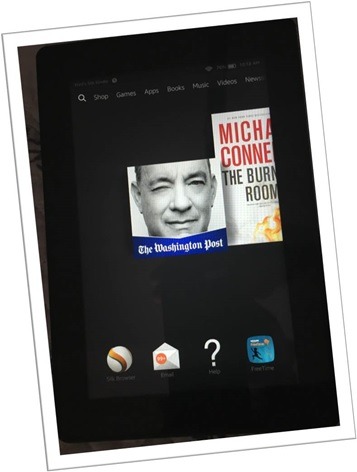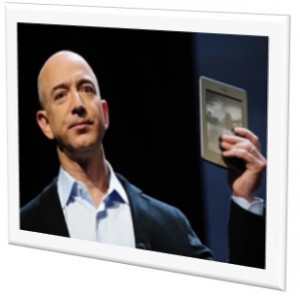At a time when TSL continues to erode, many critics of commercial radio claim that industry CEOs are out of touch with the changing media landscape. Or that they’re running out the clock on their careers, sticking the next generation of executives with the problems that are besetting their legacy media brands.
 But we all know CEOs who “get it,” who are working hard to affect change, while at the same time, striving to deliver the numbers and results that will keep their enterprises healthy and afloat. It has never been a more trying time to preside over a radio company.
But we all know CEOs who “get it,” who are working hard to affect change, while at the same time, striving to deliver the numbers and results that will keep their enterprises healthy and afloat. It has never been a more trying time to preside over a radio company.
You can double that for the print business, especially the newspaper industry. Somehow, many radio people take comfort from the travails of Fourth Estate executives, most of whom have struggled with delivering a profitable product. Of course, they’re fighting an even tougher battle – trying to attract (or hang onto) a rapidly changing population that increasingly is consuming news and information on any number of screens, rather than on the printed page.
Many have wondered what it would be like for traditional media outlets like newspapers or radio stations if an outside from the technology world came to run the show. In the print world, that circumstance has become a reality as Amazon’s Jeff Bezos digs in at The Washington Post, changing policies and – more importantly – the mindset of everyone in the organization.
Nearly 16 months ago, our blog post – “Post Op” – speculated about how Bezos might affect change at the paper. And we wondered how a similar “takeover” of a radio company by a tech guru would impact our industry.
At the time, Bezos sent a memo to the entire WaPo staff. Here was the money quote:
“There will, of course, be change at The Post over the coming years. That’s essential and would have happened with or without new ownership. The Internet is transforming almost every element of the news business: shortening news cycles, eroding long-reliable revenue sources, and enabling new kinds of competition, some of which bear little or no news-gathering costs. There is no map, and charting a path ahead will not be easy. We will need to invent, which means we will need to experiment. Our touchstone will be readers, understanding what they care about – government, local leaders, restaurant openings, scout troops, businesses, charities, governors, sports – and working backwards from there. I’m excited and optimistic about the opportunity for invention.”
In one of his first big moves at The Post that symbolizes the integration of old and new media models was the release of a free app for Amazon’s Kindle tablets. That means that millions of these Kindle Fire owners – including me – woke up last week to find The Washington Post app smack in the middle of their desktop “carousels.”
That represents a rethinking of the way that newspaper brands can be distributed in a big quest to find other novel ways that use technology to expand readership and exposure. (It’s working. I’ve read the WaPo more in the last week than I have in the past two years.)
A recent New York Times article discussed the way that Bezos is changing the culture at The Post. Consider these nuggets and their implications on that newspaper’s modus operandi:
- The Post’s head of technology, Shailesh Prakash, noted that when it came to development of the app, “We talked to (Bezos) constantly. He’s our most active beta tester.”
So, we’re talking about a CEO who doesn’t just order up tech, but actually test drives the product, offering feedback to the app’s development team. Bezos reminds staffers that new products are good to go when they start loving them – an emphasis on perfection so important to pleasing a fickle, judgmental audience.
- Martin Baron, The Post’s editor, notes that Bezos offers stories about Amazon’s success, allowing the newspaper to learn “some of this stuff by osmosis.”
By having the ability to ask Bezos how Amazon navigated new tech waters, and redefined its consumer base, there’s a whole lot of learning going on – critically important for an old-line staff like The Post’s. For example, the paper has recommitted its efforts to national and international reporting, taking advantage of the long-range capabilities of apps and global distribution outlets. Many outsiders might assume that the more standard approach – to go more local – would be the top choice, but Bezos sees a bigger picture.
- Bezos has communicated a “Day 1” philosophy to The Post. That means that each day should be treated as if it were the company’s first day.
How refreshing for a storied brand like The Post – and of course, many radio stations that have been around for decades – and sound like it. Think about what it would be like to walk into the building each day with a “Day 1” mindset. And that frame of mind is what drove the decision to embed the WaPo app on Kindle devices. That’s what you call using tech to foster cume expansion, something the paper (and radio) truly need.
- With The Post, Bezos is teaching its executives to play a long game. That is, build scale, which Amazon has done since it first became an online seller of books. Steve Hills, The Post’s president and GM, notes that in his very first encounter with Bezos, the first question asked was this:
“What will it take for us to be successful 20 years from now?”
In this way, Post employees can operate without the quarterly guillotine hanging over their heads, free to be able to make decisions about products and services that can have a positive long haul impact.
Bezos’ question is one that broadcasting owners should be posing to their management teams as we near the end another flattish year.
Rethinking how enterprises will make use of innovation to ensure their existence – and their success – a decade beyond 2015 goes to the heart of brand leadership and vision.
For The Washington Post, it took a Jeff Bezos buying the newspaper with his own money, and then rethinking new solutions and lab experiments he could apply to a historic product.
What would he do with a radio company?
Certainly not run out the clock.
- What To Do If Your Radio Station Goes Through A Midlife Crisis - April 25, 2025
- A 2020 Lesson?It Could All Be Gone In A Flash - April 24, 2025
- How AI Can Give Radio Personalities More…PERSONALITY - April 23, 2025





Hi Fred –
Mr. Bezos is always an inspiration. His greatest strength is his forward thinking and patience.
But the best 57 minutes you will spend today is with this interview of VICE’s CEO Shane Smith.
https://www.youtube.com/watch?v=3qHjln3yZFs&curator=MediaREDEF
They partner with old and new platforms (TV, newspaper and magazines but oddly not radio). They do brand partnerships. They know mobile is the platform of today and tomorrow but also know they don’t have monetization figured out.
They do research and understand the concept of cohorts and what they want.
At 24:30 into the interview he says “they kill all our darlings. Every 5 years they have a Mao-ist movement and give the company over the Interns”.
Who in radio is going to reach out and partner with VICE, Buzzfeed, VOX or The Verge for a new content direction? (Buzzfeed and VOX have 150 million users a month now and they are aggregators of content not creators)
The biggest companies have stations and certainly day parts on those stations to experiment with something totally different. And I don’t mean a new format based on a group of songs that have been “in the rest category” for the last 5 years.
Watch and be inspired. I was.
Mike, thanks for adding to the conversation, as always. I’m going to please “The Skiposphere” on this one – that is, I’lll have to carve out a quiet hour to watch Shane’s interview. I would look forward to seeing comments from others who take the time to take it in. Thanks so much.
Fred, this line really zeros in on what I think many of our execs and local managers are lacking: “we’re talking about a CEO who doesn’t just order up tech, but actually test drives the product, offering feedback to the app’s development team. Bezos reminds staffers that new products are good to go when they start loving them – an emphasis on perfection so important to pleasing a fickle, judgmental audience.”
How many radio managers are wideband enough to contribute to ALL aspects of their own operations? In the past 8 years or so owners have concentrated on one aspect: revenue(sales). On the surface that seems to make sense. Except when the ENTIRE organization needs a re-boot. On it’s own, focusing only on sales doesn’t even jumpstart sales! If it did we wouldn’t see so many radio groups run by sales execs in the crapper year after year.
Bezos has the right idea. Know your entire organization. Be educated enough in the entire operation to add value in all areas, not just sales. Increase the fun, listener engagement, client satisfaction, staff involvement—and you’ll see a gain in revenue.
The days of simply whipping the sales department harder are over. Managers who lack understanding of all aspects of their businesses and how they work together to generate revenue are dinosaurs. And, as we read daily in our own trades, their performance shows it.
Jack, thanks for the kind comments and the on-point observations about the changing state of the industry. It’s an entirely different challenge for owners, CEOs, and market managers. Appreciate you taking the time.
It’s wise to recall, before holding them up as a guiding light into the future, that Amazon and Bezos have never made a profit. Ever.
Bill, I was waiting for a comment like this. While you are correct, this is a long game play that somehow seems to satisfy a lot of shareholders. But there’s no arguing there’s always parentheses around their numbers. Thanks for taking the time.